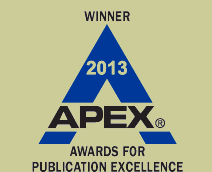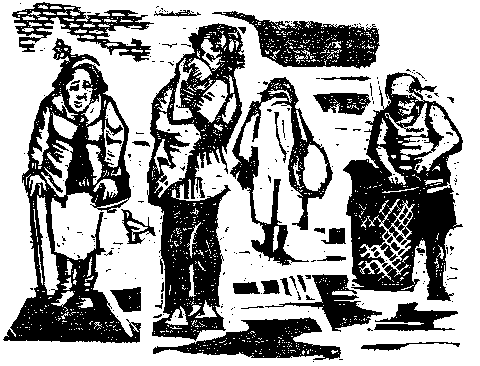 |
||||||||||||
|
November/December 2013
BY SANDY MILLER
Working with homeless women veterans can bring new and unique challenges: the challenge of dealing with childhood abuse, domestic violence, and military sexual trauma. The list is endless, and these women’s struggles sometimes last a lifetime. But working with them can also bring rewards in knowing that we—this sisterhood of veterans—have picked up, dusted off, and carried on. Despite the obstacles many of the women face, they work very hard to make changes and accept new challenges. Many women veterans find themselves homeless as they try to escape domestic violence. These women are survivors; they know how to adapt and adjust to almost any environment. They are the fastest growing subpopulation among the total homeless population. They are coming to the streets with families in tow; small children with nowhere to call home. Why and how can this happen? Why do these women find themselves alone, afraid, and so very vulnerable? Often, it is a whirlwind of substance abuse or domestic violence that finally reaches a point where their battered and bruised bodies can take no more. Coupled with mental health issues—bipolar, depression, or paranoia—and it’s easy to see how these women come to be. But for some, life doesn’t stop there. They know there is something out there for them, something better: a new life, a new beginning, another challenge. So they begin their search for answers, safety, and security. They strike out on a new mission—a mission of change and challenge. They know their journey will not be easy; it will be full of pitfalls, blood, sweat, and many tears. Yet they give up everything, come in from the rain, surrender, and begin to rebuild. And so the work begins—peeling back the onion, that bittersweet onion. For the first time they face the issues and troubles that brought them to this place in their lives. A place where the hardest work of their lives will take place. It is not easy to admit that you need help, have no more bridges to burn, and must start over. But we also begin to see inner strength and renewed spirits. At the Mary E. Walker House, located on the grounds of the Coatesville VA Medical Center and operated by the Veterans Multi-Service Center, the battle begins for thirty homeless women veterans. Walker House opened its doors on January 3, 2005, as the result of a VA Homeless Grant and Per Diem award. It’s a thirty-bed facility for homeless women veterans; they can stay as long as two years.
The mission at Walker House is to offer a safe, supportive environment where homeless women veterans can live in harmony with others while they work to attain personal growth and enhance life skills in order to reestablish themselves as members of the community and regain ownership of their lives. The program provides transitional housing and pre-vocational activities to make it possible for the homeless woman veteran to attain personal security and residential stability, with an increased skill and income level, and greater self-determination and self-sufficiency. The battle begins on the very first day. The work is hard; the investment the women make is massive. It is their program; it is their home. The women have a full schedule of classes, therapy sessions, and rap sessions. With time, they begin to see themselves as different from the mentally battered women they were when they arrived. In time, a new image is born. Computer training is available; job developers help with job searches; and a van driver is available to take the women to appointments, interviews, and meetings. For those women who are unemployable, Walker House staff help with filing for Social Security and VA benefits, including non-service-connected pension or service-connected compensation. The agency has two accredited service officers: one VVA service officer and one AVVA service officer. Job searching is one of the most difficult activities for the majority of the women at Walker House. Because of military sexual trauma, domestic violence, and other reasons, many are not ready to be placed in the community job market. Some have been so victimized that they are unable to ride public transportation because of the presence of men. By working with their VA psychologists and with mental health treatment, many women progress and are able to work again. But this progress does not come easily. It is often slow and painful. But still, they push toward that light at the end of the tunnel. Learning how to budget and manage their finances is a very difficult challenge for the women. With monthly budget meetings and mandatory budget training, the women are held to an extremely strict savings contract. Many must learn the difference between “needing” and “wanting” things. Binge spending can devour savings in a split second. By holding them to a level of accountability, Walker House staff can help them clear debt, rebuild credit scores, and provide an avenue to financial self-sufficiency. For these women, the journey through homelessness and recovery is much like driving a car. First they study the rules of the road. They become familiar with the vehicle. They begin to drive, however tentatively. And before long they are setting the direction in which they will travel. They begin making the decisions, choosing which turns to make in order to safely arrive at their destination: a new beginning, a new change, a new challenge. In addition to her work at Mary E. Walker House, Sandy Miller chairs VVA’s Homeless Veterans Committee. Her email address is smiller@vva.org
|
||||||||||||
|
|
||||||||||||
|
||||||||||||
8719 Colesville Road, Suite 100, Silver Spring. MD 20910 | www.vva.org | contact us |
||||||||||||










 Working with homeless veterans can be a challenge: a challenge of patience, a challenge of passion, a challenge of emotion. But when those homeless veterans are women, many other problems present themselves.
Working with homeless veterans can be a challenge: a challenge of patience, a challenge of passion, a challenge of emotion. But when those homeless veterans are women, many other problems present themselves.